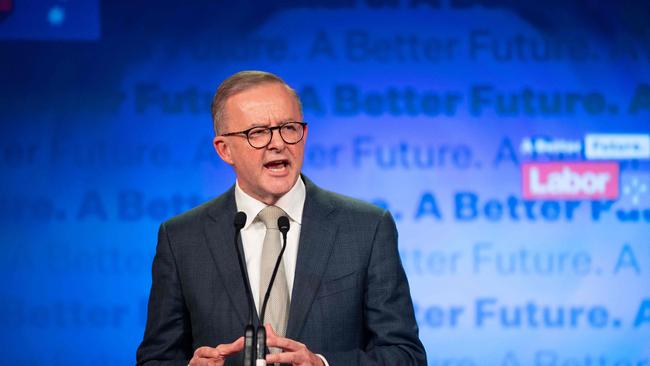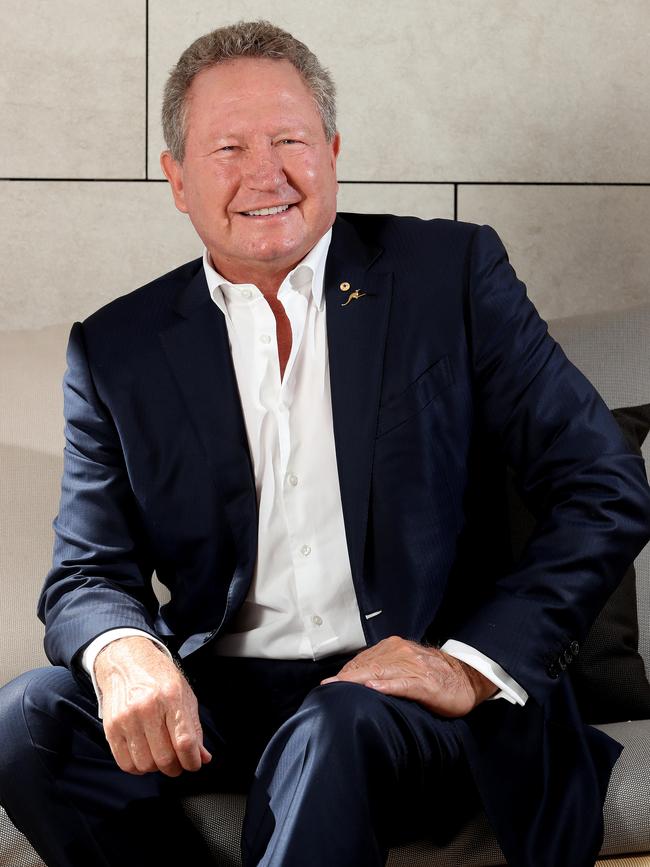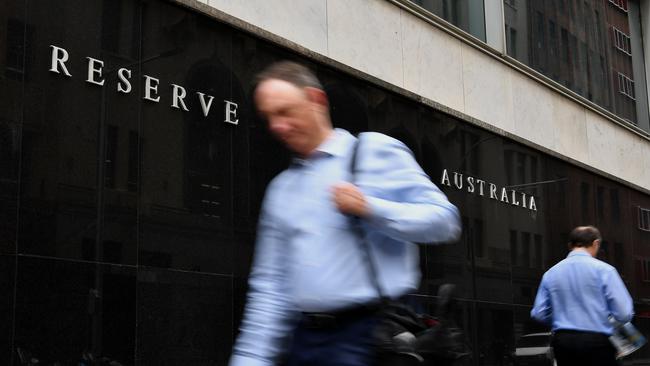Election 2022: The new business roadmap for working with Anthony Albanese
Corporate Australia is under no illusions that Anthony Albanese is promising a pro-business government.

Anthony Albanese’s history as a consensus builder has given business some confidence that Australia can move forward, just like when everyone – including Canberra, unions and government agencies – was pulling in the same direction at the start of the Covid crisis.
Most of all, chief executives are relieved that Australia looks to be on track for a stable majority government, while also encouraged by the rise of the teal independence movement in Australian politics as a potential counter to Labor’s union-backed instincts.
Labor has a longer-term ambition to convert these teal voters to their side while the Greens erode their base.
Outside of the climate demands, many of the teal candidates, based in former Liberal strongholds in the cities, are aligned with the aspirational values of the Business Council of Australia, ranging from tax cuts for individuals and business to lighter regulation.
While the business links of Albanese and his incoming treasurer Jim Chalmers don’t run as deep as the outgoing Morrison government, the new Prime Minister forged strong contacts through his former ministerial post in transport and infrastructure during the Rudd/Gillard governments.
Getting to work straight away. Briefed at home in Logan by the Treasury Secretary, discussing the substantial economic and budget challenges our new government is inheriting. #auspol#auseconpic.twitter.com/00ygno68en
— Jim Chalmers MP (@JEChalmers) May 22, 2022
This includes names such as Qantas boss Alan Joyce and Sir Rod Eddington, who at the time was the inaugural chair of Canberra-backed Infrastructure Australia under Albanese.

Meanwhile Sam Mostyn, the chairman of Citigroup and a Mirvac director, remains a public supporter of Albanese and attended his victory celebration in Sydney’s inner west on Saturday. This is critically important, as Mostyn is also the chair of the hyper-connected Chief Executive Women organisation, which counts hundreds of the nation’s top female executives and directors as members as well as having significant links with corporate Australia.
Chalmers emerged from the gruelling six-week election campaign with more authority than when it started, particularly following his debate against former treasurer Josh Frydenberg. Those who have worked with Chalmers describe the Queenslander as ambitious and looking to make his mark as a reformer and respected treasurer.
Chalmers recieved a briefing from the Treasury secretary Steven Kennedy on Sunday.
Corporate Australia is under no illusions that the Albanese-Chalmers partnership is promising to be a pro-business government. But given lessons of the Covid years and new challenges ranging from hyperinflation to slowing global growth, a co-operative approach would be welcomed.
As an influential cabinet minister in the Gillard and Rudd governments Albanese was often involved in negotiations with the crossbench to reach consensus.
“Business will respond positively to that,” one top executive at a major listed company says. The executive noted that Albanese was keen to stress unity and optimism as core themes during his victory speech.
Uneasy relationship
Prior to the Covid pandemic, big business had an uneasy working relationship with Morrison. They knew ultimately they would have his ear but felt they could be targeted for political gain, particularly on ESG issues, and their role in the economy was often ignored in favour of small and mid-sized business owners. The lack of diplomatic efforts on China, the nation’s single biggest trading partner, was troubling for exporters. There was concern about creeping interference, particularly in energy policy, and super funds – which oversee massive pools of capital – remained cautious of policy on the run. A more normalised environment outside of Covid could see some of these stresses return under Morrison.

A speech by former Liberal minister Ben Morton, a close ally of Morrison, given in late 2019, was widely seen as setting the tone for the strained relationship, At the time he accused big business as being on the frontline of social issues but “missing in action” when it came to advocating for growing the economy.
The recent March budget contained little for big business when it came to far-reaching reforms in energy security, supply chain resilience and tax simplification.
Mining billionaire Andrew Forrest on Sunday became one of the first business leaders to congratulate Albanese, seizing on the incoming Prime Minister’s ambition for Australia to become a “renewable energy superpower”. This comes as Forrest is working to pivot his iron ore miner Fortescue into a major green hydrogen exporter.

“At Fortescue, we chose to take matters into our own hands to rapidly transition to green energy and to be the worldwide heavy industrial leader in decarbonising our company. We want other emitters to follow,” Forrest said.
“We now hope to see a more forward-leaning climate change policy from Australia. We are pushing ahead to turn Australia into a green energy superpower.”
National Australia Bank chief executive Ross McEwan, one of the nation’s most experienced bank bosses, also opened the door for consensus.
“We look forward to working constructively with the incoming federal government to progress policies that support our customers, particularly households and small businesses, and that grow the economy,” says McEwan.
Rob Scott at Wesfarmers, the Australia’s biggest private sector employer, says he looks forward to “having the opportunity to work with (the Albanese government) on a range of important issues that will help shape the future of our nation and support our long-term economic prosperity”.
Economic traps
In a little over two weeks time new Prime Minister Anthony Albanese and his Treasurer Chalmers will be given the unwanted gift of the biggest interest rate rise seen in Australia in more than two decades. That expected 40 basis point rise is very likely to be followed by another rate hike in July as the Reserve Bank seeks to tame raging inflation.
With surging inflation, a slowing Chinese economy and a real risk the US could slip into a recession, the Australian economy and the new government is set to be tested.
As AMP Capital chief economist Shane Oliver said: “Governing in a world of higher inflation and interest rates will be the main challenge for the new Government”. In its May board minutes released last week the RBA said it was concerned about inflationary expectations. The message remains: more hikes on the way.

Economists see the cash rate hitting as much as 2 per cent by the end of this calendar year, up from 0.35 per cent currently. This will require the most aggressive round of rate hikes since Paul Keating was PM in the early 1990s.
Treasury is forecasting Australia’s gross debt to peak at 44.9 per cent within the next three year, with more than $1.1 trillion in debt on issue. The new government is underestimating the challenge of significant budget repair and reform that is needed to get this back to more sustainable levels.
Debt levels as currently projected can be tolerated as long as Australia remains a high growth economy. But the moment growth rates slow this can push up debt to GDP ratios, while sharper economic slowdowns can pressure credit ratings.
Another trap left for the incoming Labor government is the last budget’s 50 per cent cut to the fuel excise. This measure cost the budget a net $3bn and is due to expire in August. This could add more than 0.25 per cent to inflation, and the cost of living jump could put intense pressure on the Albanese government to extend the excise cuts.

The budget is forecast to have combined $225bn of deficits over the next four years, including $78bn next financial year, giving Labor very little room to move with its big-ticket policy platforms including universal childcare and a multi-billion-dollar fund to build thousands of low-cost houses.
A factor that can turn political is the end of the bull market in shares, as central banks continue to tighten monetary conditions. Albanese in his acceptance speech reaffirmed his commitment to universal superannuation. Australian shares are down 6 per cent from their bull market highs, a relative outperformer to global shares, such as the US which is down 19 per cent, and Europe down 16 per cent. Super funds have large exposure to global shares which will be felt in returns over coming months.
Likewise, a slowing global economy is on the cards and despite the cooling of political relations, any pullback in Chinese growth has a magnified impact on Australia, given the sheer size of the trading relationship.
One of the most closely watched economists on Wall Street, Goldman Sachs’ chief economist Jan Hatzius, last week told The Australian that the US must accept a period of lower than normal economic growth to tame runaway inflation.
Hatzius says there’s a one-in-three chance of a US recession within the next two years.
For Australian business right now the biggest issue is access to labour, particularly skilled labour after two years of closed borders. A fast-tracking of immigration as well as a return of international students will ease pressure on supply, and for business act as a stabiliser against an inflationary wages breakout, while unemployment sits at a near 50-year low of 3.9 per cent.
johnstone@theaustralian.
com.au



